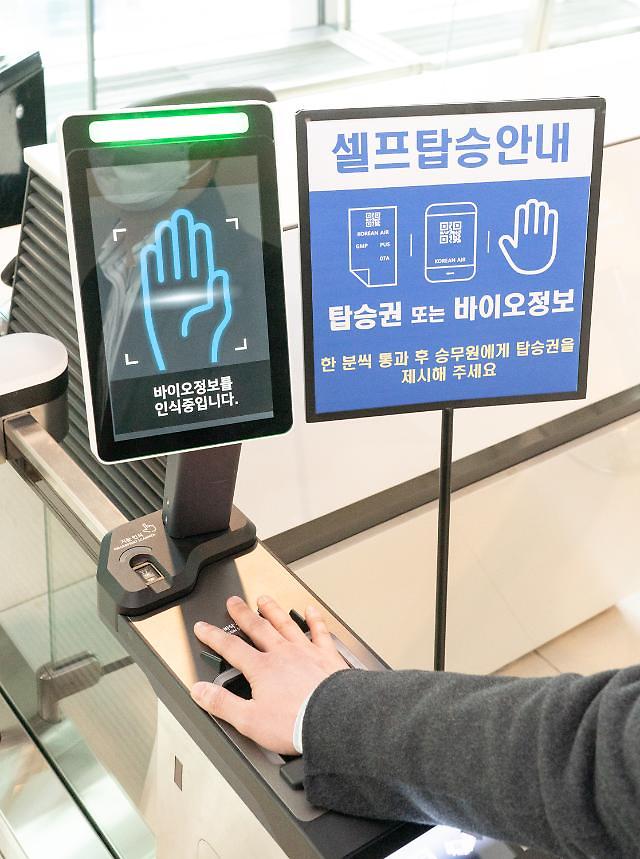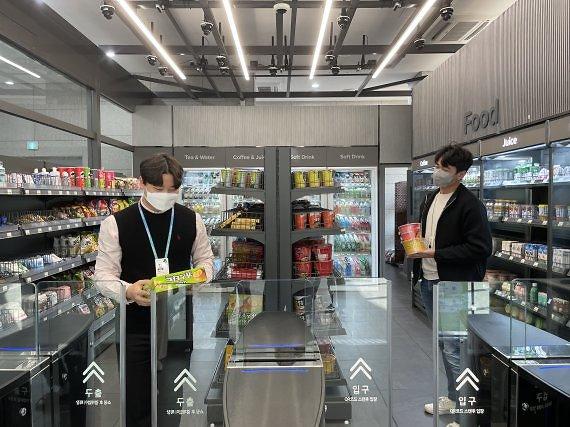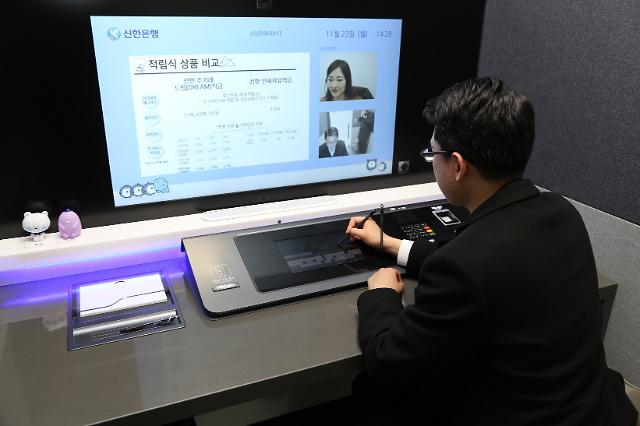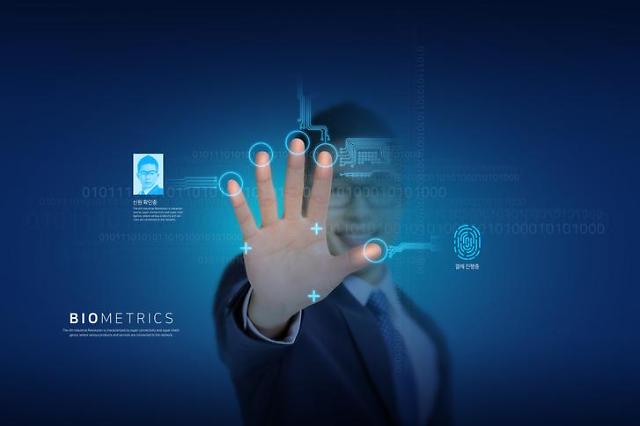
[Courtesy of Korean Air ]
SEOUL -- In an effort to cut wait times and ensure accurate boarding, Korean Air became the first South Korean airline to introduce pre-registered palm vein biometric information in authenticating the identity of passengers for domestic flights at airport boarding gates. Passengers do not have to take out paper or mobile boarding passes and scan the barcode.
From February 8, Korean Air (KAL) launched the so-called "bio self-boarding service" that allows passengers to board airplanes only with the biometric information of pre-registered palm veins for domestic flights at five gates in Gimpo Airport in western Seoul. Scanners quickly check palm vein and boarding pass information.
KAL was confident that the new service would strengthen verification efficiency and security while significantly reducing the time for boarding, as palm vein biometric information is not at risk of theft, duplication, or loss. Koreans aged seven or older are eligible to use the service if they register palm veins with consent to use personal information at the self-registration desk on the departure floor of Gimpo Airport.
Within this year, Korean Air vowed to expand the palm vein verification service to all domestic boarding gates at Gimpo Airport. The service will be introduced later for international flights. Korean Air currently provides its facial recognition service called "One ID" in Atlanta, Los Angeles, New York and Singapore. One ID integrates identification procedures using passenger biometric information.
At airport security checkpoints, the palm vein verification service has already been introduced. The Korea Financial Telecommunications and Clearings Institute, (KFTC) a state financial transaction authority, has worked with Korea Airports Corporation (KAC), the operator of airports, to utilize biometrics data at airports. When palm vein authentication is fully adopted, passengers can use automated teller machines or pay for food at airports just with their biometric authentication.
South Korea, which is a country with thriving digital payment and authentication markets, has expanded the use of biometrics from airports and banks to convenience stores. Physical characteristics such as unique patterns of humans' iris are used as a cybernetic alternative to physical keys.
In November 2020, an innovative counter booth installed with a video consultation system, a palm vein recognition device and an identification card scanner made its debut at a Shinhan Bank branch in central Seoul to provide a financial service for consulting on loans or opening new accounts.




